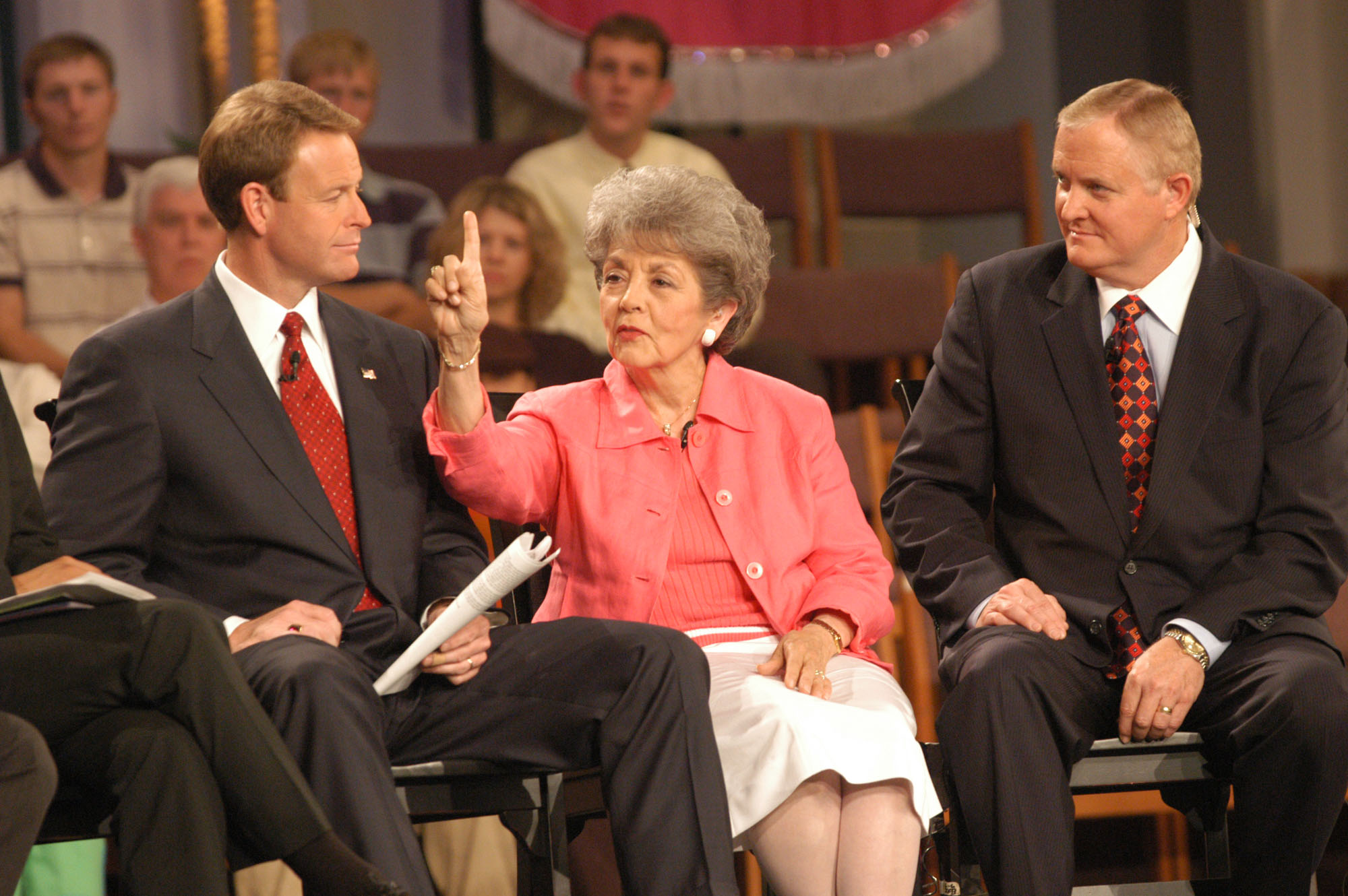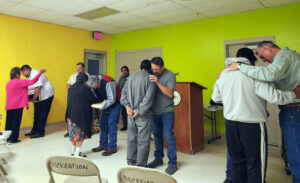
NASHVILLE, Tenn. (BP)–No battles were won and no moral issues were solved but guests on MSNBC’s “Hardball with Chris Matthews” all agreed on one point: very few countries in the world besides the United States allow public debate like the one broadcast June 28 from Two Rivers Baptist Church in Nashville, Tenn.
Focusing on the role of religion in American politics, the show’s panelists offered a wide spectrum of views on such topics as the role of evangelicals in today’s pluralistic society, the recent Supreme Court decision to ban the Ten Commandments from all courtrooms and the right to life, both at birth and at death in regard to the Terri Schiavo case.
Welcoming the studio audience before the show began, host Matthews relayed his experience at the recent Billy Graham crusade in New York and shared how impressed he was that such a diverse group of people was brought together by the elderly evangelist. “I don’t discount the importance of religion in politics,” Matthews said. “We’re used to saying ‘never argue politics or religion’; tonight we’re doing both.”
Jerry Sutton, senior pastor of Two Rivers, was among the panelists in the hour-long session that preceded President Bush’s address to the nation. Also on the panel were Albert Pennybacker of the Clergy and Laity Network; Tony Perkins of the Family Research Council; Reza Aslan, a Muslim religious scholar; Bobbie Patray, president of the conservative Eagle Forum of Tennessee; and Mikey Weinstein, an Air Force cadet parent upset about perceived religious intolerance at the academy.
When asked by Matthews whether he wanted God to have a bigger presence in public life “in terms of reference, in our documents, in our currency …” Sutton responded by saying, “What I don’t want is the whole reference of God to be removed. Four references in our Declaration of Independence refer strictly to our Creator, the one who is divine Providence. And why remove that? I mean, that’s our foundation. That’s our heritage.”
Other participants during the show included Richard Land, president of the Southern Baptist Ethics & Religious Liberty Commission; Michael Schiavo’s attorney George Felos; author and speaker Tony Campolo; and former Alabama Supreme Court Chief Justice Roy Moore.
Following an exchange between Felos and Perkins on the involvement of the public and the government specifically in the Schiavo case, Land was asked by Matthews what role religious groups should play in instances like the Schiavo controversy and in cases of abortion.
“[As citizens,] we have a right to decide, along with other citizens, public policy,” Land said. “If our moral views on these issues are based upon our religious convictions, we have a right to bring those religious convictions to bear. [Separation of church and state] was never intended to mean the separation of religiously formed moral values from public policy. We don’t have a right to expect that we win automatically but we shouldn’t be censored and we shouldn’t be excluded.”
Commenting after the show was over, Perkins said he believes Christians have “every right to participate in the process” and that Christians have worked to reclaim what was lost when many left the public square after the 1925 Scopes trial. With the emergence of the Moral Majority and the Christian Coalition, Perkins said that after 30 years, “Christians have finally figured out the pieces, and people don’t like that. What we’re saying [to those who complain] is ‘join the discussion — but don’t keep us out of it.'”
Land agreed, pointing out that Christians are seeking religious pluralism, not secularism, and that perhaps the biggest misunderstanding of the night was the fact that evangelical Christians feel discriminated against. “The liberals and the non-Christians need to understand that evangelicals do feel discriminated [against],” Land told Baptist Press. “Everyone [tonight] who said that evangelicals don’t [feel that way] aren’t evangelicals. It’s terribly important to understand and be very careful to preserve the right that all views can be aired.”
Ashley Clayton, associate pastor at Two Rivers, said the church was selected as the venue for the event through a series of conversations between the show’s producers and the ERLC, due in part to the size and technical capabilities the church offered as well as the strong stance that its pastor, Sutton, has taken on cultural issues.
“If we hope for anything tonight,” Clayton said, “it’s that the message will be conveyed that the Scriptures speak to the issues of life…. We don’t tell [our church members] how to vote, but we want them to be informed.”
Sutton was hopeful following the show. “Our desire for the nation is for Christians to live out their convictions,” he said. “Not just on Sunday or [on Election Day], but seven days a week.”
–30–

















